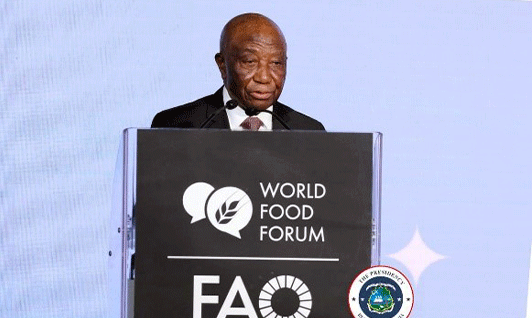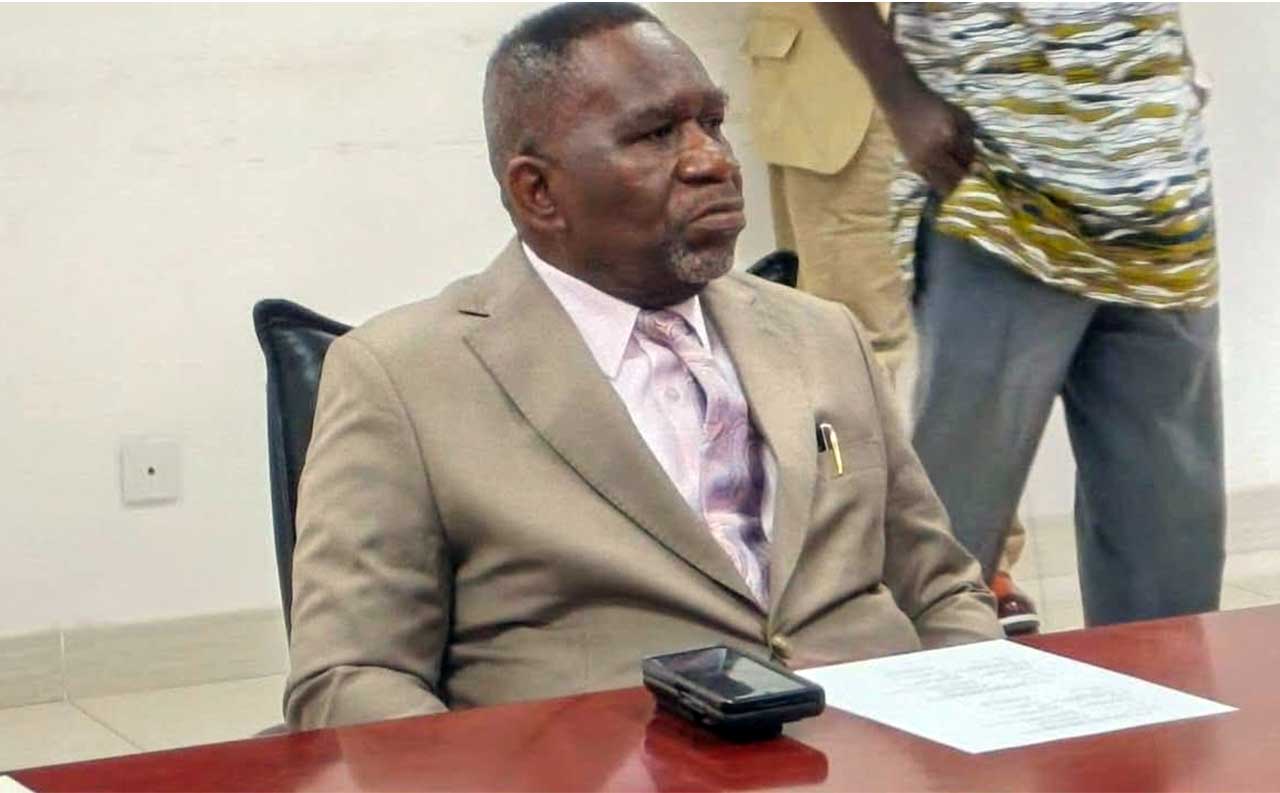President Joseph Nyuma Boakai has told delegates at the World Food Forum currently happening in Rome, Italy, that the Agro-Industrial Development Program will be central to Liberia’s vision for food security, economic growth and wealth creation in rural areas.
Addressing the forum on Monday, October 14, 2024, President Boakai said the program is expected to create new jobs, attract foreign direct investment and generate critical foreign exchange for the country.
The President said Liberia will also establish an Agriculture Enterprise Development Bank to improve access to finance for farmers and agribusinesses, further empowering smallholder farmers, women and youth to participate in and benefit from the agricultural value-chain.
He called on global leaders to commit to concrete actions that will lead to tangible change as the fight against hunger is not just about producing more food, but about creating resilient, inclusive, and sustainable agri food systems.
“The time for rhetoric has passed,” President Boakai said. “We have the knowledge, the technology and the resources. What we need now is the will to act.” Meanwhile, President Boakai has called on the global community to take swift and decisive action to address the growing food insecurity crisis, particularly in Africa.
He said there is an alarming rise of hunger and malnutrition and the time for endless discussions has passed- the world must now act. The President outlined Liberia’s ambitious plan to drive agricultural transformation, positioning the country as a key player in the fight against global hunger.
He said central to Liberia’s strategy is the development of a sustainable agri-food system that will strengthen local food production, improve rural livelihoods and secure a better future for all citizens. President Boakai said the launch of Liberia’s Agro-Industrial Development Program will focus on oil palm and cocoa as key crops to drive economic growth and food security.
This initiative, he said, is aimed at cultivating 100,000 hectares of land initially, expanding to 300,000 hectares over time to meet both local and regional demands. He said it is important to leverage technology, digitization, and research to improve agricultural practices and boost productivity, thus the need for greater investment in rural infrastructure, including roads, markets and storage facilities, to enhance food supply chains and reduce post-harvest losses.
With climate change posing an increasing threat to food security, President Boakai called for the adoption of climate-smart agriculture, including drought-resistant crops and environmentally sustainable farming practices.



